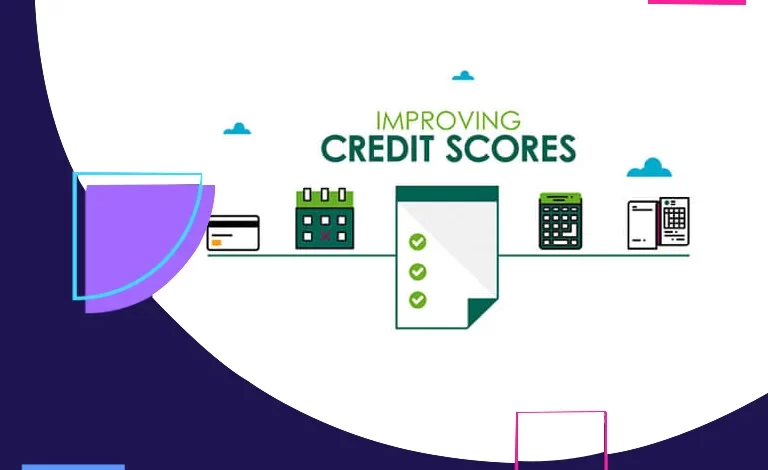
Your credit score is higher or lower by a few numbers can up or down your image with the lender. Credit score determines whether the financial product you get will suit your needs. Therefore, any opportunity to increase the credit score should be noticed.
By the way, there are many ways for you to improve your credit score. But the method about which this article is about, people need to give more importance to it. That method is “paying rent on time and reporting to credit bureaus.” Renting an apartment, house, or townhouse on time increases your FICO score.
Does Paying Rent Build Credit?
Paying rent can help build credit, but it doesn’t automatically contribute to credit history or scores like credit cards or loans. However, rental payments can only be reported to your credit reports if you or your landlord is enrolled with Landlord Credit Bureau for a rent-reporting service.
What is Rent Reporting?
Rent reporting enables landlords to report tenants’ rental payments to credit bureaus. Landlords can avail of this service, either covering the cost or passing it to tenants. Rent reporting creates a new tradeline on the tenant’s credit report, positively impacting their credit score within 30 days. It opens doors to improved financial opportunities like lower interest rates and better insurance premiums without any extra debt.
How Credit/Rent Reporting Works to build credit score?
When a consumer applies for loans, credit cards, or retail financing offers, lenders rely on credit checks and balances to evaluate their creditworthiness. For this process, the consumer’s credit history is evaluated through the credit score, which is found in the credit report. It includes an applicant’s timely payment of accounts, recent credit applications, credit card limit, etc.
All financial products, such as credit cards or loans used by a consumer, are reported to the Consumer Reporting Agencies (CRAs). There are three major agencies in Canada: Equifax®, Experian® and TransUnion®. These agencies collect data that creditors report to them. This results in an update to the consumer’s credit report and a change in the credit score (up or down).
How to report rental payments to the credit bureaus?
Paying the total rent regularly and on time helps build a good credit history. That’s why when you pay rent, report it to the credit bureaus via a rent-reporting service. However, this is a monthly paid service.
After signing up for the rent-reporting service, tenants make payments through this service. The monthly rent minus the service charge is transferred to the landlord. In this way, every rent payment is reported to the credit bureaus to bring a positive change in the credit score.
Here’s how to report on-time rental payments to the credit bureaus:
- Please discuss with your landlord first: They might already be using a rent-reporting service, which can save you on fees. If not, ensure they are willing to participate and accept payments through the service.
- Choose your service and create your online profile: Follow the instructions and contact the rent-reporting service for any queries.
- Ensure your landlord can receive payments via the service: Typically, rent-reporting services collect your total rental payment, deduct their fee, and transfer the remaining amount to your landlord. Each service needs some details, so assist your landlord with any required information for the setup process.
- Provide necessary information: Check that the rent-reporting service correctly reported your first month’s payment.
- Regularly update payment information: Confirm that payment was noted on your ExperianTM, Transunion® and Equifax® credit report.
What Are The Pros And Cons Of Rent Reporting on Credit Score Reports?
Pros:
- Positive reporting – Making on-time payments serves as a rewarding opportunity for renters. It contributes to a positive credit history and demonstrates responsible financial behaviour.
- Tenant screening – A tenant or landlord can access the complete rental history using rent reporting. It includes both positive and negative aspects of their rental payment history.
- Marketability – By implementing rent reporting, you can attract tenants who prioritize building good credit and aligning with their financial goals. It provides more opportunities for tenants and landlords to work together to build and improve credit profiles.
Cons:
- Adverse reporting – Every late or missed payment is reported to credit bureaus, negatively affecting their credit score. Consequently, some renters may express concerns when their entire credit report is requested.
- Potential cost – Rent reporting is typically served by third-party service providers, which demands extra costs and potentially reduces your net income. However, numerous property management software platforms now offer built-in rent reporting features, allowing you to implement credit bureau reporting without adding extra expenses.
Why consider choosing rent reporting services?
Both the landlord and the tenant can enjoy the following benefits by choosing rent reporting services:
Benefits of Rent Reporting for Property-owners:
- Additional convenience – By offering rent reporting as an additional convenience, you attract tenants who prioritize paying rent on time. It indicates they are likely to have their finances in order and are more reliable and stable tenants.
- Helps the renting industry as a whole – The Rent Payment Report highlights the tenant’s payment history and eligibility for the next landlord. So what was good for the old landlord is also suitable for the new one, and what was wrong is also bad.
- Lower tenant risk – Renters who default or skip payments can be evicted more quickly if you know their rental history.
Benefits of Rent Reporting for renter:
- An incentive for on-time rent payments – Rent reporting benefits tenants willing to put their credit score above everything else and is an excellent incentive for those who struggle to pay rent on time. Positive rental reporting is the foolproof way to build credit.
- They are achieving future financial goals – Rent reporting benefits tenants by increasing their credit scores and adding positive credit history without needing credit cards or loans. Credit scores can improve within 30 days of on-time payment, leading to better financial opportunities like mortgage approval and favourable loan rates.
Why not consider PaydayMart to cover expenses?
Finding the perfect housing for rent in Canada is a challenging task. However, if you want extra cash between $100 to $1,500 for rent or security deposit, Canada payday loans online with no refusal from PaydayMart will help you.
No matter your credit history, once your loan is approved, get funded within 5 minutes via e-Transfer.
Paying Rent On Time To Build Credit- Some FAQs
Does missing rent hurt my credit score?
Missed rent payments can harm your credit indirectly if your account goes to collections or a civil judgment is issued. Otherwise, rental history usually doesn’t directly affect your credit score.
Is rent payment reported to credit bureaus?
It is essential to rent payments should be consistently reported to credit bureaus. While some property management companies report, it’s not like credit card or loan payments, so rental history may not appear on credit reports.
Does renting affect my credit scores?
Renting alone doesn’t impact your credit score directly. Your credit score is mainly influenced by your credit history, typically associated with credit cards, loans, and debt.
How much does paying rent increase my credit score?
Rent payments boost your credit score differently, but it’s hard to calculate. The impact depends on factors like the reporting service, scoring model, and weight given to rental payment history.











